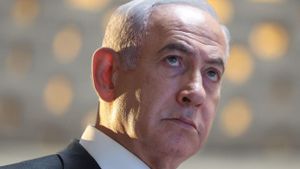Romania's political scene has recently been rocked by the unexpected aftermath of the country's first round of presidential elections. The Constitutional Court has ordered a recount of all ballots cast, following the surprising performance of independent candidate Calin Georgescu, who garnered approximately 22.9% of the votes. This decision adds to the already turbulent atmosphere as Romania braces for key legislative elections and a runoff presidential vote scheduled for December 8.
The recount stems from complaints lodged by Cristian Terhes, another conservative candidate who received only 1% of the votes. Terhes has argued for annulment of the election results due to alleged irregularities, claiming the electoral process was compromised. The court, which unanimously backed the recount, dismissed Terhes's request for annulment as untimely but recognized the need for re-verification of the ballots.
Georgescu’s rise to prominence can be attributed to his unorthodox campaign strategies significantly amplified on social media platforms like TikTok. Analysts suggest he attracted vast support, particularly from younger voters and Romanians living abroad. His account on TikTok has amassed millions of views, showcasing his populist message and highlighting his personal interests such as judo and martial arts. Despite his unexpected win, many experts are now questioning the legitimacy of the electoral process and warning of potential foreign influences—particularly from Russia—over Romania’s political environment.
The ruling party’s candidate, Prime Minister Marcel Ciolacu, was eliminated from the race when Ciolacu received slightly over 19% of the votes, losing to Georgescu by thousands. His exclusion from the runoff signifies the first time the Social Democratic Party did not advance to the final round of the presidential elections since the fall of communism. Facing off against Georgescu is centrist candidate Elena Lasconi, who criticized the Constitutional Court's recent order. Lasconi, who placed second, emphasized the necessity to defend democracy against what she termed appalling maneuvers and backroom tactics.
President Klaus Iohannis's office has raised alarms over potential cyberattacks aimed at manipulating the election outcomes, noting the increasing focus of hostile state actors like Russia on Romania. This has prompted calls for investigation by the National Audiovisual Council, which has requested the European Commission look closely at TikTok's contribution to the election's dynamics. Authorities have pointed out the platform's failure to adequately classify Georgescu as a political figure, providing him and his content with disproportionate exposure compared to other candidates.
TikTok has strongly refuted the allegations of providing preferential treatment, asserting they applied standard operating procedures for all candidates. Georgescu himself has characterized these accusations as attempts to strip voters of their agency, asserting his support stemmed from grassroots campaigning rather than any manipulative backing from social media.
The recount of 9.46 million ballots is not without its challenges, as logistical concerns arise over meeting the court’s timeline. The Permanent Electoral Authority's president, Toni Grebla, has expressed skepticism about the feasibility of completing the recount swiftly, due to the volume of ballots spread across various locations.
Political analysts regard these developments as unprecedented since Romania's shift to democracy several decades ago. The convergence of allegations surrounding foreign interference, the integrity of institutions, and social media's role complicates the already volatile political environment. Concerns mount as distant ramifications may influence the runoff and upcoming parliamentary elections, altering the country's pro-Western stance and commitment to NATO. Observers are left to answer: how will these revelations shape Romania’s future as it navigates alliances and its commitment to democratic processes?



